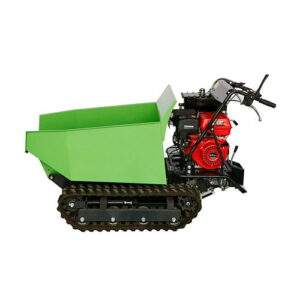Choosing the Right Mini Excavator for Your Construction Project
Introduction

In the realm of construction, mini excavators have emerged as indispensable tools, offering a versatile combination of power, maneuverability, and compact size. However, selecting the right mini excavator for a specific project is crucial for ensuring efficiency, safety, and cost-effectiveness. This comprehensive guide delves into the intricacies of mini excavator selection, exploring factors to consider, common mini excavator sizes, and applications. We will also provide a table summarizing the key points discussed, empowering you to make informed decisions about choosing the right mini excavator for your construction projects.
Factors to Consider When Choosing a Mini Excavator
The selection of the appropriate mini excavator size hinges on several critical factors:
- Project Scope and Requirements: The size and complexity of the project dictate the mini excavator size needed. Larger projects demand larger mini excavators with greater power and capacity.For smaller projects, a compact mini excavator may be sufficient to get the job done efficiently. It is important to carefully assess the requirements of the project to determine the appropriate mini excavator size for optimal performance and productivity.
- Site Conditions: Terrain, soil type, and obstacles influence mini excavator selection. Smaller mini excavators may be more suitable for rough or uneven terrain, while larger mini excavators can handle challenging conditions.Consider the specific needs of your project when choosing a mini excavator to ensure optimal performance and efficiency. Additionally, operator experience and comfort should also be taken into account when selecting the right machine for the job.
- Budget Considerations: Mini excavator size directly impacts the purchase or rental cost. Evaluate the project budget and choose the most cost-effective mini excavator size that meets the project requirements.Consider the depth and width of the excavation area, as well as any space constraints on the job site. Opting for a smaller mini excavator may be more affordable, but if it takes longer to complete the project due to size limitations, it could end up costing more in the long run. On the other hand, choosing a larger mini excavator that can complete the job faster may justify the higher upfront cost. Carefully weigh the pros and cons of each option to make an informed decision that aligns with your project budget and timeline.
- Operator Experience and Skills: Consider the operator’s experience and skill level when selecting a mini excavator size. Larger mini excavators require more experienced operators to ensure safe and efficient operation.Operators should also consider the specific job requirements and site conditions when choosing the appropriate mini excavator size. It is important to match the machine’s capabilities with the demands of the project to achieve the best results.
- Environmental Regulations: Some regions may have regulations regarding mini excavator size and emissions. Ensure the selected mini excavator complies with applicable environmental standards.Failure to comply with these regulations may result in fines or other penalties. It is important to research and understand the specific requirements in your area before purchasing or using a mini excavator. Additionally, regular maintenance and proper disposal of fluids and materials are essential to minimize environmental impact. By staying informed and following guidelines, you can operate your mini excavator responsibly while minimizing harm to the environment.
Common Mini Excavator Sizes and Their Applications
Mini excavators are categorized into different size classes based on their blade width and horsepower:
- Small Mini Excavators (Blade Width: 6-8 Feet, Horsepower: 60-100): Ideal for small-scale projects, landscaping, and finishing work.This versatile tool is easy to handle and perfect for DIY enthusiasts looking to add the finishing touches to their projects. With its compact size and user-friendly design, it’s a great addition to any toolkit. Whether you’re working on a garden renovation or a home improvement project, this tool will help you get the job done quickly and efficiently.
- Medium Mini Excavators (Blade Width: 8-10 Feet, Horsepower: 100-150): Suitable for a wider range of projects, including road construction, site preparation, and material handling.
- Large Mini Excavators (Blade Width: 10-15 Feet, Horsepower: 150-300): Designed for large-scale earthmoving projects, such as mining, dam construction, and land clearing.
- Extra-Large Mini Excavators (Blade Width: Over 15 Feet, Horsepower: Over 300): Employed in the most demanding projects, including heavy-duty earthmoving, pipeline construction, and large-scale site development.
Table: Summary of Common Mini Excavator Sizes, Blade Widths, Horsepower Ranges, and Applications
| Mini Excavator Size | Blade Width | Horsepower Range | Applications |
|---|---|---|---|
| Small Mini Excavator | 6-8 Feet | 60-100 | Landscaping, finishing work, small-scale construction |
| Medium Mini Excavator | 8-10 Feet | 100-150 | Road construction, site preparation, material handling, general earthmoving |
| Large Mini Excavator | 10-15 Feet | 150-300 | Mining, dam construction, land clearing, large-scale earthmoving |
| Extra-Large Mini Excavator | Over 15 Feet | Over 300 | Heavy-duty earthmoving, pipeline construction, large-scale site development |
Conclusion: Selecting the Right Mini Excavator for Optimal Project Outcomes
Choosing the appropriate mini excavator size is paramount for successful construction projects. By carefully considering project requirements, site conditions, budget constraints, operator experience, and environmental regulations, you can select the mini excavator that optimizes efficiency, safety, and cost-effectiveness. Remember, a mini excavator that is too small for the job will struggle to perform, while a mini excavator that is too large may be unnecessarily expensive and difficult to maneuver.
FAQ
Q: What factors should I consider when choosing a mini excavator for my construction project?
A: Several factors should be taken into account, including the size and scope of your project, the terrain and environmental conditions, the specifications and capabilities of the mini excavator, your budget constraints, and the availability of attachments and accessories.
Q: How do I determine the appropriate size of mini excavator for my project?
A: The size of the mini excavator you need depends on factors such as the size and depth of the excavation, the weight and volume of materials to be moved, and the accessibility of the work area. Smaller excavators are suitable for confined spaces and light-duty tasks, while larger models offer increased digging depth and lifting capacity for more extensive projects.
Q: What are some common attachments and accessories for mini excavators, and how do I choose the right ones for my project?
A: Common attachments for mini excavators include buckets, thumbs, augers, hydraulic breakers, and grading blades. The choice of attachments depends on the specific tasks you need to perform, such as digging, lifting, breaking, or grading. Consider factors such as attachment compatibility, ease of installation, and versatility when selecting attachments for your project.
Q: How important is brand reputation and support when choosing a mini excavator?
A: Brand reputation and support are crucial factors to consider when selecting a mini excavator, as they can impact reliability, durability, and customer satisfaction. Research the reputation of different brands in terms of product quality, service support, and warranty coverage to ensure long-term reliability and peace of mind.
Q: What are the key considerations for evaluating the total cost of ownership of a mini excavator?
A: The total cost of ownership includes factors such as the purchase price, operating costs (fuel, maintenance, repairs), depreciation, resale value, and financing options. Conduct a cost analysis to determine the overall cost-effectiveness of each mini excavator option and choose the one that offers the best value for money over the long term.


